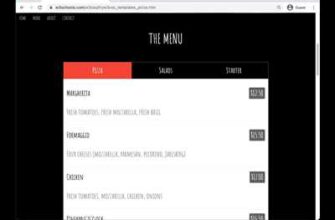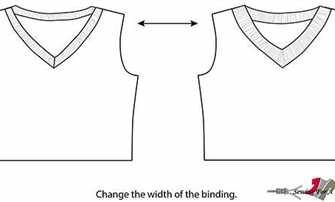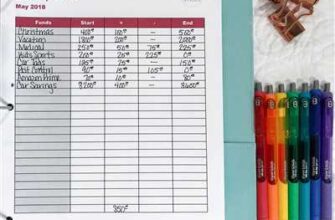
If you’re a food lover, you’ve probably come across some successful blogs that make money through various means. But have you ever wondered how these bloggers actually make a living from their blogs? Well, there are many ways to do so, and in this article, we’ll take a look at some of the most popular strategies that food bloggers use to monetize their blogs.
One of the most common ways that food bloggers make money is through advertising revenue. As their blogs gain traffic and their audience grows, they can start to open up opportunities for ads on their websites. These ads can be in the form of banners, links, or even sponsored posts. By partnering with brands and advertisers, bloggers can earn a little extra income and turn their passion for food into a successful career.
Another way that food bloggers can make money is by creating and selling digital products. E-books, courses, and online classes are just some of the ways that bloggers can share their knowledge and experiences with their audience. By packaging their expertise into material that can be purchased, bloggers can create a steady stream of revenue. And with the ease of using platforms like WordPress, it’s easier than ever to get started as an online course creator or e-book maker.
In addition to advertising and digital products, some bloggers also generate income through affiliate marketing. By recommending products and including affiliate links in their blog posts, bloggers can earn a commission from any sales that are made through those links. This can be a great way to monetize a food blog, especially if you have a loyal audience that trusts your recommendations.
And let’s not forget about sponsored content! Many food bloggers have partnerships with brands and companies that pay them to create content featuring their products. This can include recipe development, sponsored posts on social media platforms like Instagram, or even collaborations with other bloggers and creators. By leveraging their audience and influence, bloggers can turn their love for food into a paid gig.
All in all, there are many different ways for food bloggers to make money. Whether it’s through advertising, digital products, affiliate marketing, or sponsored content, there’s no shortage of opportunities for bloggers to monetize their passion. So if you’re thinking about starting a food blog of your own, know that it’s not only possible to make money from it, but also that there are strategies and resources out there to help you get started on the right foot. Happy blogging!
5 Ways to Make Money on Instagram as a Food Creator

As a food creator on Instagram, there are several ways to monetize your content and turn your passion into a source of income. These strategies can help you make money and maximize your revenue streams:
1. Sponsored posts: One of the most popular means of getting paid as a food creator on Instagram is through sponsored posts. Many brands are willing to work with successful food bloggers and creators to promote their products. By partnering with these brands and featuring their products in your posts, you can earn a commission or receive a flat fee.
2. Affiliate marketing: Another way to make money on Instagram is by using affiliate links. By recommending products or services in your posts and including a unique affiliate link, you can earn a commission for every sale made through that link. This can include anything from e-books and courses on how to start a food blog, to kitchen tools and appliances.
3. Create and sell your own products: If you have a loyal audience and they trust your expertise, you can create and sell your own products. This can range from e-books with your favorite recipes and cooking tips, to online courses where you share your knowledge and experiences as a food creator. By packaging your skills and knowledge, you can provide value to your audience and generate income.
4. Sponsored experiences and collaborations: In addition to featuring products, you can also partner with brands to create unique experiences or collaborate on special projects. For example, you could host a cooking workshop or collaborate with a local restaurant to create a special menu. These experiences not only generate revenue, but also help build your brand and expand your network.
5. Ad revenue through a blog or podcast: If you have a blog or podcast alongside your Instagram account, you can monetize it through ad revenue. By using platforms like WordPress and plugins, you can easily incorporate ads into your website or podcast episodes. This can be a great way to generate passive income and earn money even when you’re not actively promoting products on Instagram.
By implementing these 5 ways to make money on Instagram as a food creator, you can turn your passion for food into a successful online business. Whether it’s through sponsored posts, affiliate marketing, creating your own products, sponsored experiences, or ad revenue, there are plenty of opportunities to monetize your Instagram presence and make money doing what you love.
How much do food bloggers make a year
Food bloggers have multiple streams of revenue through which they can make money. One of the most common means is through their blogs. By creating valuable and engaging content, food bloggers can attract a large audience and generate traffic to their websites. This traffic can then be monetized through various strategies.
Many food bloggers make money through sponsored posts and collaborations with brands. These collaborations involve promoting products or services on their blogs or social media platforms, such as Instagram. Brands pay bloggers to create content that showcases their products and reaches their target audience.
Another way food bloggers make money is through affiliate marketing. By including affiliate links in their blog posts, bloggers can earn commission whenever a reader makes a purchase through those links. This can be an effective way to generate passive income, especially if the blogger has a large and loyal audience.
Food bloggers can also make money by creating and selling their own products. This can include e-books, online courses, or even physical products like cookbooks or kitchen utensils. By leveraging their expertise and unique recipes, bloggers can create valuable resources that their audience is willing to pay for.
In addition, food bloggers can monetize their blogs through advertising. They can display ads from ad networks, such as Google AdSense, and receive a portion of the revenue generated from those ads. Another option is to partner with brands directly and display sponsored ads on their blogs.
Some food bloggers also make money through sponsored travel and experiences. They may work with hotels, restaurants, or tourism boards to showcase their destinations and experiences. This can include paid trips, accommodations, meals, and other perks in exchange for creating content and promoting the brand or destination.
To maximize their revenue, successful food bloggers should diversify their income streams. By using multiple sources of income, bloggers can ensure a steady flow of money throughout the year. This can include using platforms like WordPress and utilizing plugins to optimize their blogs for monetization.
While some food bloggers can make a little money from their blogs, there are also many bloggers who have turned it into a full-time career and earn a significant income. The amount of money a food blogger can make in a year depends on various factors, such as the size of their audience, the level of engagement they have with their readers, and the monetization strategies they employ.
In conclusion, food bloggers have numerous opportunities to make money through their blogs. By leveraging their audience, creating valuable content, and utilizing various income streams, food bloggers can earn a substantial income each year. Whether it’s through sponsored posts, affiliate marketing, selling products, or other means, food bloggers have the potential to turn their passion into a profitable online business.
Which Revenue Streams Should You Get Started With
As a food blogger, there are many ways to monetize your online presence and make money from your passion. Here are some revenue streams that you can consider getting started with:
- Advertising: One of the most common ways that food bloggers make money is through advertising. By getting enough traffic to your blog or website, you can start displaying ads and earning money from the clicks or impressions. There are many ad networks out there that can help you with this, such as Google AdSense.
- Affiliate Marketing: Another popular way to make money as a food blogger is through affiliate marketing. This means that you promote products or services on your blog, and if your readers make a purchase through the affiliate links, you will earn a commission. For example, you can recommend kitchen gadgets or ingredients that you use in your recipes.
- Sponsored Content: Many food bloggers also collaborate with brands and get paid to create sponsored content. Brands are often eager to reach a blogger’s audience and are willing to pay for recipes or reviews that feature their products. This can be a great way to earn some extra income while doing what you love.
- E-books and Courses: If you are a successful food blogger with a lot of knowledge and experience, you can create and sell e-books or online courses. This allows you to monetize your expertise and provide value to your audience. You can teach others how to cook specific cuisines, create their own food blogs, or even share your own blogging strategies.
- Podcast: Podcasting has become a popular means of reaching an audience and generating revenue. As a food blogger, you can start your own podcast where you discuss cooking tips, restaurant reviews, and share your culinary experiences. You can monetize your podcast through sponsorships, ads, or even by selling merchandise related to your podcast.
These are just some of the revenue streams that you can explore as a food blogger. It’s important to understand that not all of these methods will work for everyone, and it may take some time and experimentation to find the ones that are most successful for you. However, by using a combination of these strategies and diversifying your income sources, you can make a significant amount of money from your food blog or website.
E-books and Online Courses
Aside from creating content on their blogs and social media platforms, food bloggers can also generate income through e-books and online courses. These digital products provide a means for bloggers to share their knowledge, experiences, and recipes with their audience in a more structured and comprehensive format.
By turning their expertise into online courses or e-books, bloggers can offer their customers valuable material that goes beyond what is available on their blogs or social media. E-books can be created in various formats such as PDFs or as interactive content using software like Adobe InDesign. Online courses, on the other hand, can be hosted on platforms like WordPress or using specialized course management plugins.
Bloggers who have built a sizable audience and have established themselves as authorities in their niche can make good money by selling these digital products. E-books and online courses can be sold for a one-time fee or through monthly or annually paid subscriptions. The potential revenue streams from selling e-books and online courses can be quite substantial, especially if the blogger has a loyal and engaged audience.
Creating e-books and online courses can be a little more time-intensive and resource-demanding compared to other means of generating income, but the rewards can be significant. Food bloggers can leverage their existing content, recipes, and experiences to create valuable educational resources that their audience is willing to pay for.
In addition to generating revenue, e-books and online courses can also help food bloggers establish themselves as experts in their field, gain recognition, and attract more opportunities. By sharing their knowledge and expertise, bloggers can position themselves as trusted sources, thus attracting partnerships, sponsorships, and collaborations with other brands and businesses.
When creating e-books and online courses, bloggers should consider the topics that their audience is most interested in and tailor their content accordingly. They should also ensure that the material provided in these digital products is unique and offers value that cannot be found elsewhere for free. This will help entice customers to purchase the e-book or enroll in the online course.
Food bloggers can promote their e-books and online courses through various channels such as their blogs, social media platforms, podcasts, and even through guest appearances on other bloggers’ platforms. They can also use email marketing, create landing pages, and utilize affiliate links to reach a wider audience and increase their sales.
Overall, e-books and online courses are effective ways for food bloggers to monetize their expertise, creativity, and passion for food. By turning their knowledge into valuable resources that customers are willing to pay for, bloggers can open up new revenue streams and make money from their blog and online presence.
Источники

Food bloggers have several ways to monetize their blogs and turn their passion for food into a lucrative online business. Here are some of the most popular sources of income for successful food bloggers:
1. Sponsored Content: Food bloggers can earn money by partnering with brands and promoting their products through sponsored blog posts, recipe development, and social media posts.
2. Advertisements: Many bloggers make money by displaying advertisements on their websites. They can join ad networks or work directly with brands to place ads on their blogs.
3. Affiliate Marketing: Bloggers can earn a commission by promoting products or services and including affiliate links in their blog posts. When readers make a purchase using these links, the blogger gets a percentage of the sale.
4. Selling E-books, Courses, and Plugins: Successful food bloggers often create and sell their own products, such as e-books with exclusive recipes, online courses on cooking and photography, or plugins that enhance the functionality of their blogs.
5. Brand Partnerships: Bloggers can collaborate with food brands to develop and promote new recipes, create sponsored content, or become brand ambassadors. These partnerships often lead to paid collaborations and long-term relationships.
6. Creating and Selling Physical Products: Some food bloggers go beyond digital products and open online shops where they sell physical items related to food, such as kitchen tools, cookbooks, or specialty ingredients.
7. Podcasts and YouTube Channels: Many food bloggers extend their reach by starting their own podcasts or YouTube channels. These platforms offer opportunities to partner with sponsors or monetize through advertisements.
8. Patreons and Donations: Some bloggers rely on the support of their audience and offer exclusive content or perks to those who become patrons or make donations.
9. Speaking Engagements and Workshops: Successful food bloggers often get invited to speak at conferences or host workshops where they share their experiences and expertise. These events can generate additional income.
10. Sponsored Social Media Posts: Bloggers with a large following on platforms like Instagram can collaborate with brands and get paid for creating sponsored content on their social media profiles.
While these are some of the common sources of revenue for food bloggers, each blogger should find their own unique mix of income streams based on their audience, niche, and expertise. By leveraging their knowledge and experiences, food bloggers can create multiple revenue streams and turn their passion into a profitable online business.










